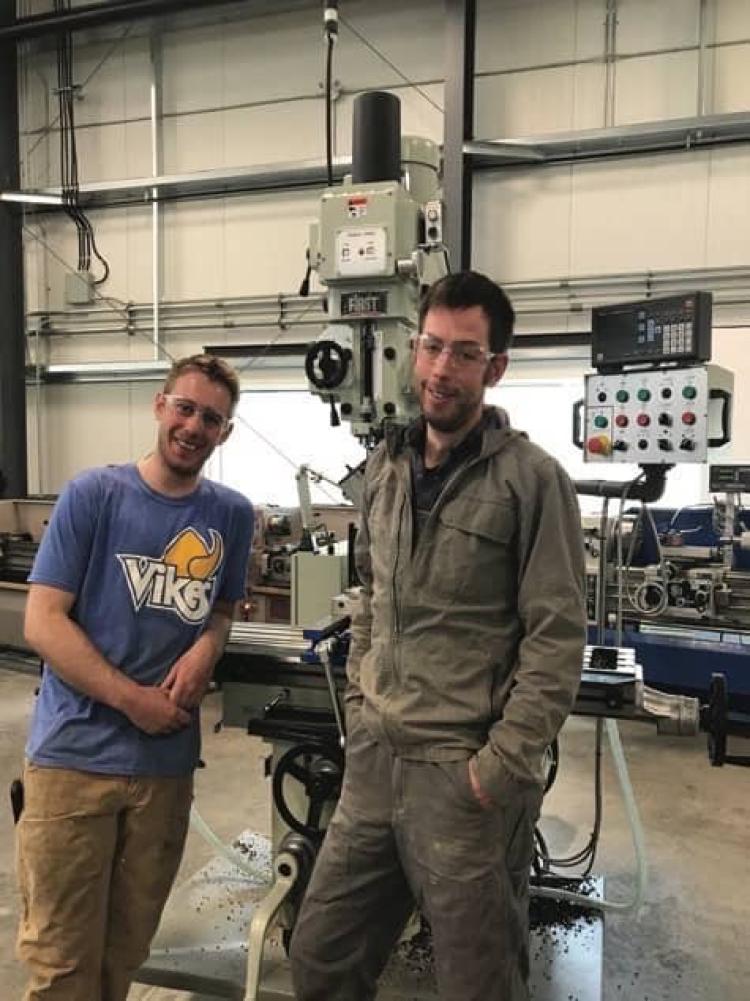Breadcrumbs
Millwright: the “jack-of-all-trades” trade

Jeff Stokes has always been interested in how things work.
He joined the Millwright Pre-Apprenticeship Program through Yukon College’s Centre for Northern Innovation in Mining last year, and recently passed his first-year exam.
Studying as a millwright allowed him the opportunity to combine skills in things like mechanics, welding and electrical to get the big picture of what it takes to keep stationary machinery running.
“The breadth of knowledge that you get from a millwright ticket – welding, electric mechanics, alignment, rigging and hoisting. It’s a robust, but hyper-condensed trade,” he says. “You’re working with a lot of different systems and between the systems.”
It’s the first time the program has run in years, and there will be another offering opening in January 2020.
Jeff didn’t know what a millwright was until he was introduced to the trade by a friend.
“The name is confusing, but a millwright is basically the ‘doctor’ of an industrial site,” says Jeff. “You are responsible for keeping the largest equipment on the site working—and you can end up troubleshooting and maintaining machines that are four-storeys high and worth millions of dollars.
“You can’t really understand the scale of the machinery until you see it.”
Jeff discovered his interest in the trade while working as a forest fire fighter in Fort McMurray. The job brought him into the oil patch industry and exposed him to the wide range of expertise needed to maintain large machinery.
“The oil patch is like an ant hive of activity, and that really appealed to me,” he says. “You get to see the scale of the industry, from natural gas to bitumen, and being around those large machines made me want to learn how they work and how to maintain them the right way.”
He came from Calgary to study in at Yukon College because the class-sizes are smaller, and that means he got more one-on-one attention from the instructor.
“Logan (Sherk) is a pretty phenomenal instructor. He worked hard to coordinate field trips to local shops as well as an eye-opening overnight trip to a mine site,” he says. “I was lucky to have such a knowledgeable and down-to-earth instructor to start off and appreciate the opportunities and teaching he’s provided.”
Students leave the program with the experience of working in a shop, a certificate, and a chance to challenge the first-year exam.
Getting the experience of visiting a working site and meeting people working in the trade was a highlight of the course for Jeff.
“It was really cool to see the satisfaction that those people took in their work,” says Jeff. “You get to work with some hyper-competent people and I want to join that team.”
